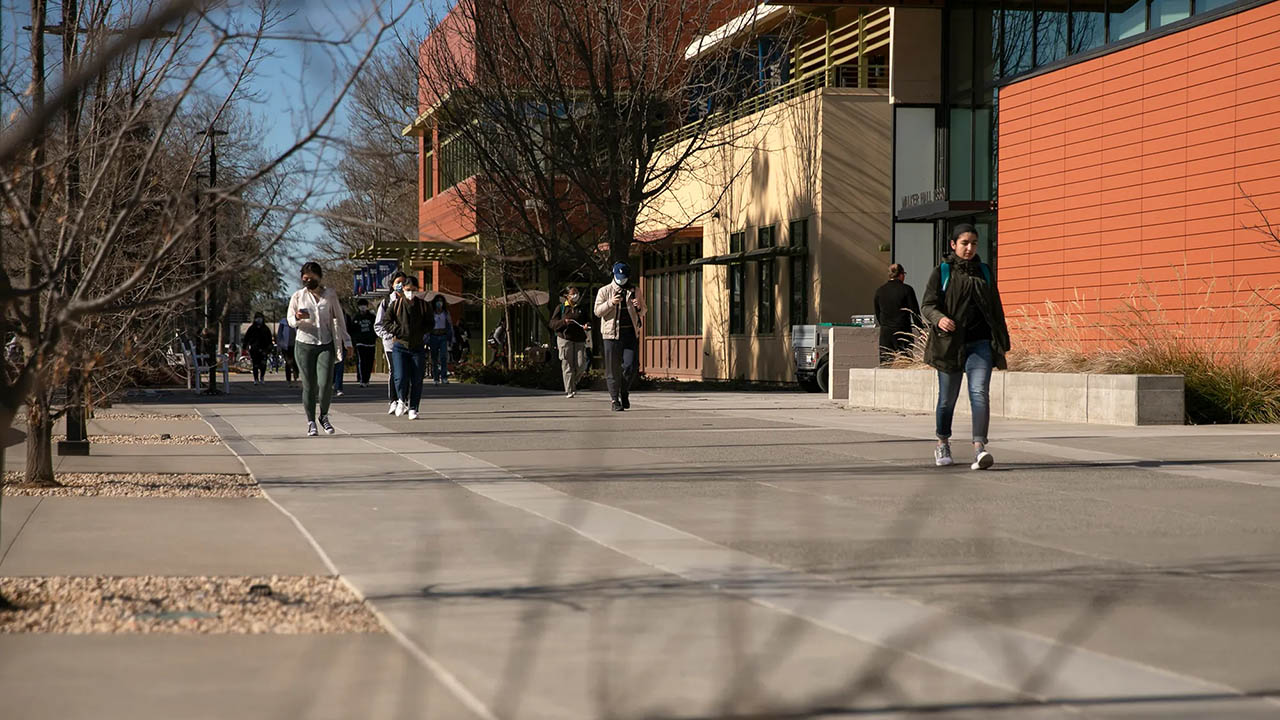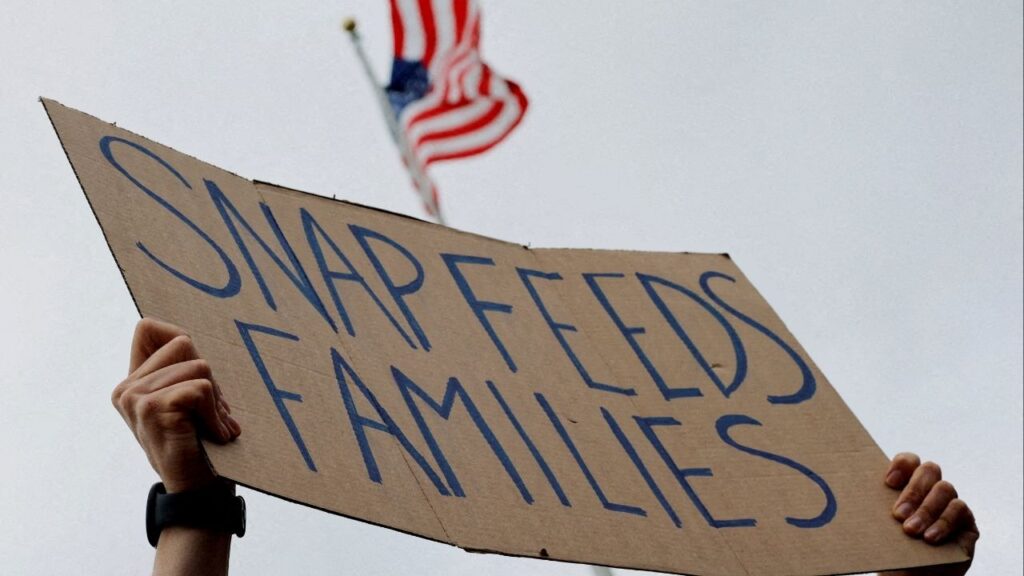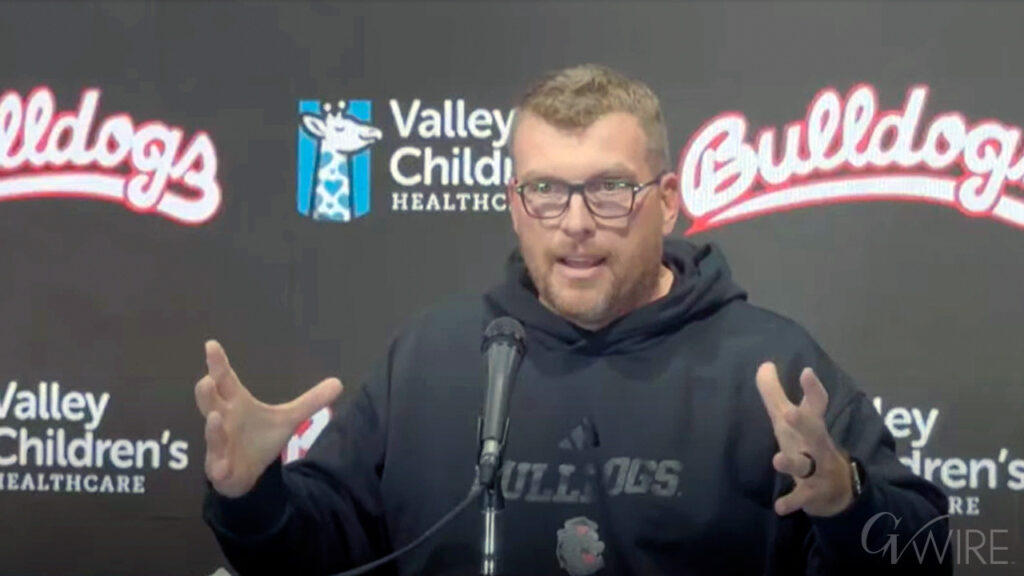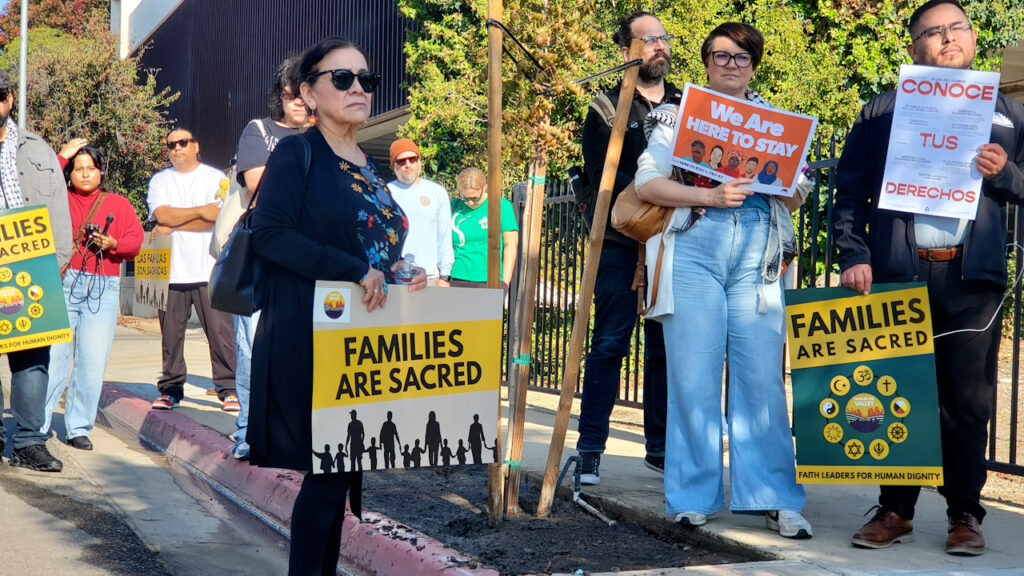A UC Davis neurologist's dementia research grant was canceled amid the Trump administration's DEI purge, halting vital work. (CalMatters/Miguel Gutierrez Jr.)

- The NIH canceled a $36 million dementia research grant for UC Davis, citing the Trump administration's DEI policies.
- Over 30 UC system research projects, worth $173 million, have been terminated since Trump took office.
- California and the ACLU filed lawsuits challenging the NIH grant cancellations and funding restrictions.
Share
This story was originally published by CalMatters. Sign up for their newsletters.
A California neurologist who’s among the nation’s top researchers on dementia has been swept up in President Donald Trump’s purging of diversity, equity and inclusion initiatives, adding to the growing cadre of research science terminated because of the administration’s edicts.
In this case, the National Institutes of Health sent Dr. Charles DeCarli of UC Davis a letter in late March telling him that his nearly $36 million research project was being canceled on the grounds that it perpetuated a “DEI” agenda. With that notification, gone are about $10 million in remaining money for a project that included 28 clinical and research sites across the country and 1,700 participants with mild cognitive impairments.
“We don’t have the ability to predict who’s going to get worse because we won’t be able to see them,” said DeCarli, who’s also co-director of the Alzheimer’s Disease Research Center at UC Davis. His project, with multiple collaborators, also had the goal of placing these participants in treatment and prevention trials.
His project joins at least 30 others across the University of California system that have been terminated by the National Institutes of Health, the world’s largest funder of biomedical research, since Trump took office. Those multi-year awards were worth more than $173 million, according to a federal tracker, and so far the federal government has frozen almost $38 million in existing grant dollars, based on a CalMatters review. Other UC grants that have been terminated include research on developing a coronavirus vaccine, studying HIV prevention and assessing how racial discrimination affects the health of older gay men.
The UC’s 10 campuses receive more than $2 billion in research funding from the agency and account for nearly a tenth of all academic research in the country.
Two weeks ago, the list of canceled National Institutes of Health grants across the country was 14 pages long. Since then, it’s swelled to 51 pages. Nationally, more than 700 grants have been canceled.
There’s an irony to DeCarli’s work getting ensnared in the federal culling: The National Institutes of Health awarded him the six-year grant in 2020 when Trump was serving his first term in office. In its call for applications, the federal agency specifically required that projects reflect the “gender, racial, and ethnic diversity in the United States.” The request for applications also asked that proposals reflect economic and geographic diversity, including people living in rural areas.
Those were all research parameters in DeCarli’s project. Both Black and Hispanic Americans are one and a half times as likely to develop Alzheimer’s or dementia as white Americans. More women than men suffer from it, too.
In its termination letter, the agency told DeCarli that “research programs based primarily on artificial and non-scientific categories, including amorphous equity objectives, are antithetical to the scientific inquiry, do nothing to expand our knowledge of living systems, provide low returns on investment, and ultimately do not enhance health, lengthen life, or reduce illness.”
DeCarli said the point of the project was to treat all Americans suffering from dementia. “I’m trying to take care of people, and just because they have different colors of their skin, should not in any way affect what I’m trying to do,” DeCarli said.
About 5 million Americans suffer from dementia, which is a loss in the ability to think, remember and reason. Advanced dementia means a person is reliant on others for basic tasks, such as eating and bathing. Dementia is more common among older Americans, but it’s not a normal part of aging.
While Alzheimer’s disease is the most common form of dementia, there are others. DeCarli’s project focused on the role vascular health plays in causing dementia. By treating vascular disease, such as injury to blood vessels in the brain, “you might be able to tolerate Alzheimer’s disease and never become demented,” he said. On the flipside, a patient may have their Alzheimer’s treated but won’t get better, because the patient’s vascular problems weren’t treated.
Without federal funding, he says his research cannot continue.
Lawsuits Over NIH Grants
The grant cancellations have triggered multiple lawsuits. California joined 15 other states whose attorneys general sued the National Institutes of Health last week in a Massachusetts federal court to reverse the project cancellations. The states argue that the grant terminations didn’t follow established federal law for how programs should be canceled and violated the U.S. Constitution. The UC filed a declaration in support of the California attorney general’s motion for a temporary restraining order.
“California universities have begun curtailing biomedical research and delaying the hiring of new staff and students who depend on NIH funding,” California’s attorney general’s office said in announcing the lawsuit Friday.
The lawsuit also alleges that the grant terminations may result in fewer doctoral students in the sciences because universities have less research money to support their education. The UC system is diverting money from other operations, like maintaining their buildings, to pay the salaries of affected graduate students, the multi-state suit says. The National Institutes of Health also terminated at least 17 grants at California State University campuses, the suit said.
The American Civil Liberties Union also filed a lawsuit last week, alleging that the federal agency and its parent department — Health and Human Services — was illegally conducting an “ongoing ideological purge” by targeting grants it perceived as focused on DEI and gender.
The UC and California separately filed suits challenging another decision by the agency to cap how much “indirect” grant funding institutions can use to support general research costs, such as building and maintaining labs and paying the people who run them.
The National Institutes of Health’s order to limit those indirect costs to 15% of a grant would reduce funding to the UC by at least $460 million and California campuses overall by about $860 million annually, according to an analysis by The Chronicle of Higher Education. Nationally, the university average for indirect costs is about 27%, though at some campuses it’s over 50%.
A federal judge in Massachusetts ruled last week that the agency must rescind its 15% policy but an appeal is likely.
The loss of federal research funding, plus a proposed cut of hundreds of millions of dollars in the state budget, prompted the UC to freeze hiring in late March.
Dementia Researcher Appeals Decision
DeCarli and UC Davis are appealing to the NIH its decision to terminate his grant. He shared with CalMatters portions of his appeal that seeks to refute the agency’s assertion that his grant “does not effectuate NIH priorities” — a phrase included in letters to other researchers whose grants were terminated.
For example, the 2011 National Alzheimer’s Project Act approved by Congress established several national research goals, including “action to promote healthy aging and reduce risk factors for Alzheimer’s and related dementias” and “prevent and effectively treat Alzheimer’s and related dementias.” DeCarli’s appeal argues that his research project meets those directives. His study is “developing a risk profile for vascular influences on cognition.” His work is also finding individuals who are at risk for dementia and creating a method for early diagnosis.
The appeal also cites Trump’s own policy of “Make America Healthy Again,” which seeks to “drastically” lower chronic disease rates. DeCarli writes that “vascular risk factors, stroke and dementia are all chronic diseases common to older adults.”
If the funds aren’t restored, he said “some staff layoffs are inevitable.” How many is unclear, but union contract rules say he’ll need to give notice in about 40 days; the affected staff would lose their jobs 60 days later.
There’s a personally demoralizing element here, too. “This particular grant was the pinnacle of my research,” DeCarli said. He wrote one of the seminal papers on vascular cognitive impairment in 1995 and has been working on the subject ever since. He was a staff researcher at the National Institutes of Health for almost a decade before entering academia.
Earning an award from the National Institutes of Health is highly competitive — only about 20% percent of applications are funded, or about 11,000 awards annually. It’s a grueling process for an already elite subgroup of specially trained researchers.
Research Already Affected
Even if the funding is restored through an appeal, DeCarli’s project has been compromised. His team is short 500 participants; the study needs a minimum number of participants from different regions and backgrounds to draw key conclusions about the role of vascular complications in dementia.
With the grant funds frozen, the continuous work of evaluating the current 1,700 participants through MRI imaging and blood work also ceases.
Though the grant was canceled for including diversity — again, a requirement of the initial grant application — the research project explores other factors about a person’s background, such as education levels and geographic location. “It turns out, if you live in the South in a place called the Stroke Belt, you’re at higher risk for vascular disease. We don’t understand why,” DeCarli said.
“Dementia affects many Americans and their loved ones,” he said. “It is an epidemic. It is a huge public health problem. This study addresses one aspect of that, and is trying to improve the health of all Americans.”
This article was originally published on CalMatters and was republished under the Creative Commons Attribution-NonCommercial-NoDerivatives license.
RELATED TOPICS:
Categories
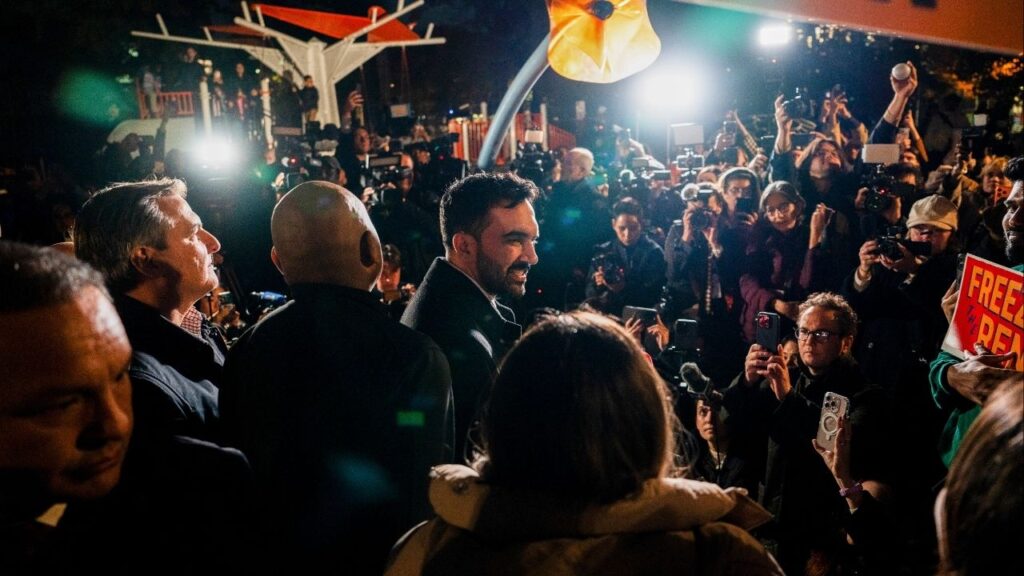
Turnout High as Voters Decide Mayor’s Race




